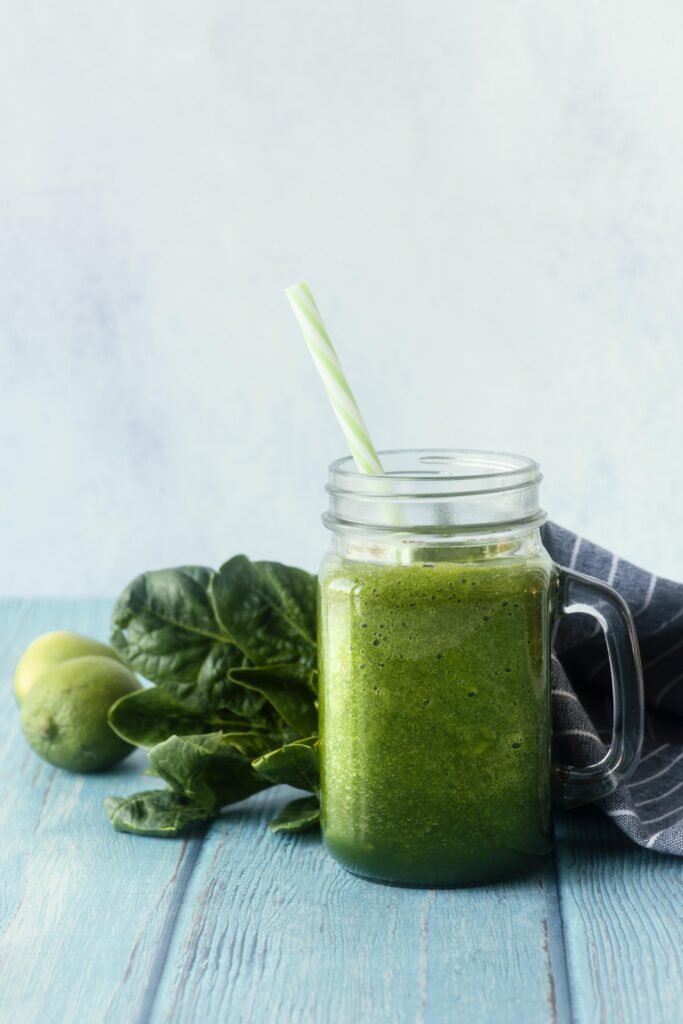Introduction
Embarking on a journey toward weight loss often involves exploring various dietary approaches. One such method that has gained popularity is the liquid diet. In this article, we will delve into the different aspects of liquid diets, their types, pros, and cons, as well as providing practical insights into their effectiveness for weight loss.

Table of Contents
Types of Liquid Diet For Weight Loss

Meal Replacement Shakes
Meal replacement shakes offer a convenient way to control calorie intake while providing essential nutrients. They come in various flavors and can be a suitable option for those with a busy lifestyle.
Juice Diets
Juice diets involve consuming freshly squeezed fruit and vegetable juices. While rich in vitamins, they may lack sufficient fiber and protein, raising concerns about nutritional balance.
Soup-Based Diets
Soup-based diets incorporate broth-based soups, offering a warm and comforting alternative. However, monitoring sodium levels is crucial to ensure a healthy liquid diet.
Water Fasting
Water fasting involves abstaining from solid food and consuming only water for a specified period. This extreme form of a liquid diet requires careful consideration due to potential health risks.
Pros of Liquid Diets
Rapid Weight Loss
Liquid diets are known for their ability to kickstart rapid weight loss. The restricted calorie intake promotes a calorie deficit, leading to the shedding of excess pounds.
Convenience and Simplicity
The simplicity of liquid diets can be appealing. It eliminates the need for meal preparation, making it an attractive option for those with busy schedules.
Improved Hydration
Increased liquid consumption contributes to better hydration, benefiting overall health. Proper hydration supports bodily functions and can enhance the weight loss process.
Cons of Liquid Diets
Nutrient Deficiencies
One of the drawbacks of liquid diets is the potential for nutrient deficiencies. Limited food variety may lead to inadequate intake of essential vitamins and minerals.
Lack of Long-Term Sustainability
Liquid diets are often challenging to sustain in the long run. Once regular eating habits resume, the lost weight may return, highlighting the importance of a balanced approach.
Potential Side Effects
Individuals on a liquid diet for weight loss may experience side effects such as fatigue, dizziness, or digestive issues. Consulting with a healthcare professional is crucial to minimize risks.
Effectiveness of Liquid Diets for Weight Loss
Short-Term vs. Long-Term Results
While liquid diets can yield quick results, sustaining weight loss over the long term requires adopting healthier eating habits and lifestyle changes.
Scientific Studies and Findings
Scientific studies on the effectiveness of a liquid diet for weight loss vary. Some show positive outcomes in the short term, while others emphasize the importance of a balanced approach for lasting results.
Planning a Healthy Liquid Diet For Weight Loss

Consultation with a Healthcare Professional
Before starting a liquid diet for weight loss, consulting with a healthcare professional is essential. They can provide personalized advice based on individual health conditions and goals.
Choosing the Right Liquids
Selecting nutrient-dense liquids is crucial. Opt for a variety of shakes, juices, and soups to ensure a well-rounded nutritional profile.
Monitoring Calorie Intake

While the goal is weight loss, ensuring an adequate calorie intake is crucial for overall health. Striking a balance is key to preventing nutritional deficiencies.
Success Stories and Testimonials
Real-Life Experiences with Liquid Diets
Many individuals have shared success stories after incorporating a liquid diet for weight loss journey. These stories can offer motivation and insights into the challenges and triumphs of the process.
Achieving Weight Loss Goals
Liquid diet for weight loss, when approached with careful planning, have helped individuals achieve their weight loss goals. These success stories highlight the potential benefits of this dietary approach.
Common Myths and Misconceptions
Addressing Misconceptions About Liquid Diets
Separating fact from fiction is crucial in understanding liquid diets. Addressing common myths helps individuals make informed decisions about incorporating this approach into their weight loss strategy.
Clarifying the Facts
Providing accurate information about the benefits and limitations of a liquid diet for weight loss helps dispel misconceptions and allows individuals to make informed choices aligned with their health goals.
Tips for Incorporating a Liquid Diet Safely
Gradual Transition
Transitioning into a liquid diet gradually allows the body to adapt, reducing the likelihood of side effects. Starting with one liquid meal a day and gradually increasing can ease the process.
Balanced Nutrition
Ensuring a balanced intake of essential nutrients is paramount. Including a variety of liquids with different nutritional profiles enhances the overall nutritional value of the liquid diet.
Regular Medical Check-Ups
Regular check-ups with a healthcare professional are essential during a liquid diet for weight loss. Monitoring overall health and addressing any concerns promptly contribute to a safe and effective weight loss journey.
Alternatives to a Strict Liquid Diet
Balanced Meal Plans
Incorporating balanced meal plans that include a variety of whole foods ensures a sustainable and healthy approach to weight loss.
Regular Exercise
Combining a liquid diet with regular exercise promotes overall well-being. Physical activity contributes to weight loss, muscle maintenance, and improved cardiovascular health.
Frequently Asked Questions (FAQs)
- What Liquids Are Suitable for a Liquid Diet?
- A variety of liquids, including meal replacement shakes, juices, and soups, can be suitable. However, it’s essential to prioritize nutrient-dense options.
- Can I Exercise While on a Liquid Diet?
- Moderate exercise is generally acceptable, but intense workouts may require adjustments to accommodate the reduced calorie intake. Consult with a fitness professional for personalized advice.
- How Long Should I Follow a Liquid Diet for Weight Loss?
- The duration of a liquid diet varies. It’s advisable to set realistic goals and transition back to a balanced diet gradually.
- Are There Any Health Risks Associated With Liquid Diets?
- While liquid diets can be effective, they pose risks such as nutrient deficiencies and side effects. Consulting with a healthcare professional before starting is crucial.
- Can I Customize My Liquid Diet Based on Dietary Preferences?
- Yes, customization is possible, but it’s important to ensure that the liquid diet provides essential nutrients and meets individual nutritional needs.
Conclusion
In conclusion, a liquid diet for weight loss can be a viable option when approached with careful consideration and planning. While it offers rapid results, it’s essential to address potential drawbacks and prioritize long-term health. Consulting with healthcare professionals, incorporating balanced nutrition, and considering alternative approaches contribute to a holistic weight loss strategy.
Do Follow Us!
Don’t miss out on more fitness insights and tips! Stay connected with us on Facebook (@ActiveLifePedia) and on Instagram (@ActiveLifePedia) for the latest updates, workouts, and motivation to supercharge your strength training journey.

